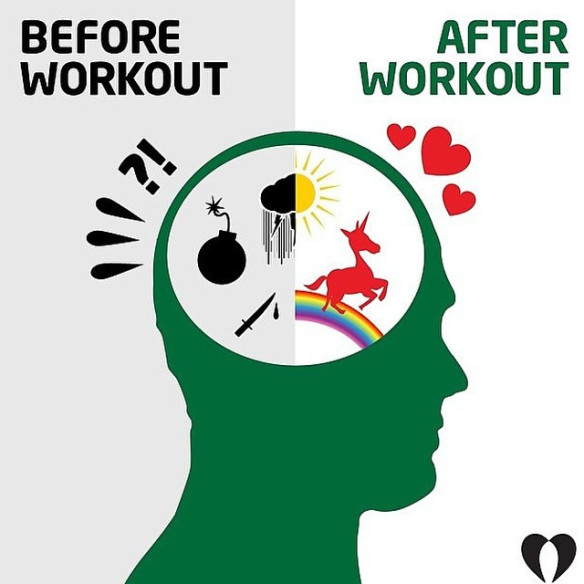Often times we are more conscious about our physical health. In fact, we prefer it over our own mental health. But that’s not the case. Both of those go along together. Absence of one causes increased risk of damaging the other.
“The link between exercise and mood is pretty strong.”
– Michael Otto (PhD and professor of psychology at Boston University)
Many people, who want to be in the best shape they can ever be, workout but they do not acknowledge its mental health benefits. They are merely focused on their physical appearances, and want to be physically fit. But did you guys know how much these exercises mentally benefit you? Focus on your post-workout behaviour. Physically, you were probably sweating, your muscles might have been shaking. Mentally, however, it’s likely you felt great. You felt at ease. You felt like you could accomplish anything. All of your worries were gone.
Being in a quarantine phase for the longest period, no doubt, aids into the laziness, but with slight modifications in your normal routine, you can accomplish this as well. So, without further ado, let’s just jump right into how we can reap the mental benefits of exercise.
- Exercise can help us keep distracted from the things that makes us anxious.
- Increased production of blood and neurons in the brain paves the way for fighting disorders like depression, chronic pain, schizophrenia etc.
- Working out regularly ensures a timed sleep schedule and tension reduction.
- Endorphins released with the workout assist in keeping us motivated to do our tasks.
- Our self – esteem is raised and we feel more confident in our own body.
Now that we know its mental benefits. Other questions that may also arise are “How much exercise should I do?”, “What kind of workouts can we do for this?”, “If exercise makes me feel good, why can’t I get off the couch?” etc.
How much exercise should I do for establishing mental health? The answer to this is just how much you like you do on a particular day. Studies show that after performing an exercise, for even as little as 10 minutes, can significantly improve your mood and provide a bit more clarity of thought. But the more you do, the stronger you and the benefits will get. An increased 40-50 minutes’ workout can have considerable benefits of tension reduction.
What kind of workouts can we do for stress relief? Studies have shown that aerobic and non-aerobic exercises may be needed depending on the exact symptoms. On the other hand, weight training and higher intensity workouts tend to show better beneficial results. Pilates, yoga and swimming is a great option for the obese, which can in turn help in fighting depression. You could also try and find some fun kickboxing or dance workout videos on YouTube! Just make sure that whatever activity you do, you are enjoying it.
If exercise makes me feel good, why can’t I get off the couch? It’s because you are starting out too hard. Remember to take one step at a time. Start slow and gradually increase your physical activity. Make sure you don’t jump in too fast! Otherwise, you’ll get tired too quick, and would not want to try it again.
To conclude, mental health is just as important as physical. In addition to physical health, exercises come with great mental health benefits. So if you hop on to any of these in your manageable time schedule, your improved stress relief and tension reduction can be ensured. You just have to keep it habitual and enjoyable!




Very Informative. Thank you for sharing❤
Excellent
Jazakallah